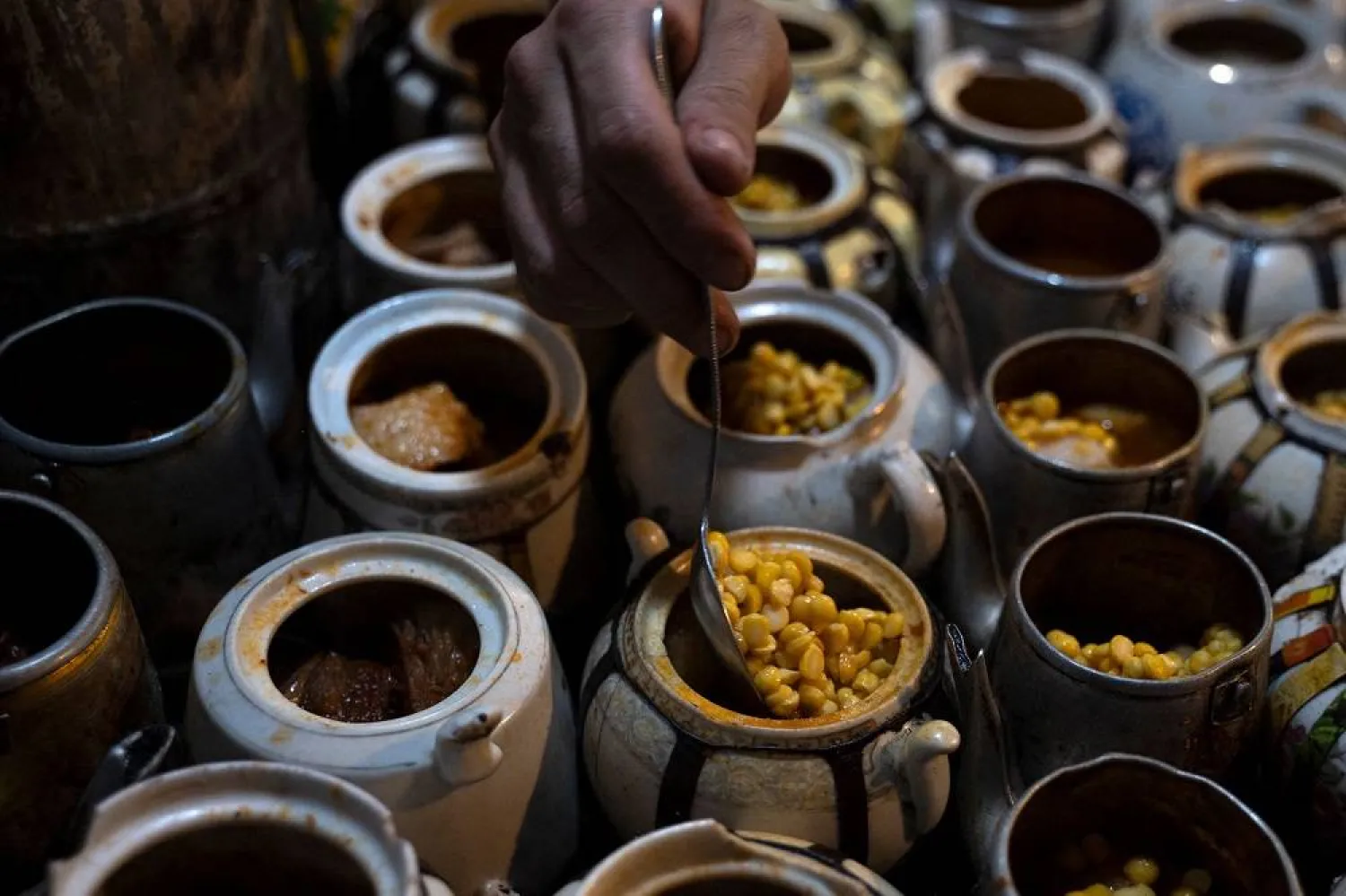In the kitchen of his Kabul restaurant, one of the last cooks to master the Afghan culinary art of "chainaki" stuffs chunks of lamb and fat into about 200 tiny teapots to simmer for hours atop a clay stove.
From dawn onwards, Waheed is a study in concentration as he checks the pots time and again -- making sure each is marinading with the precise proportion of fat rendered.
Once the pots are bubbling to his satisfaction he adds salt and lentils, before bathing the contents in a tomato-coloured sauce and secret spices.
"The recipe has been the same for over 60 years, passed down to me by my father," says Waheed, 45, who prefers to give only one name.
"He himself inherited it from his father. I haven't changed a thing."
With the fire crackling, the teapots -- many decades old, chipped or missing handles -- are covered with a sheet as the contents simmer away.
The heat quickly fills the restaurant and the heady smell of stewed lamb hangs heavy in the air.
Only then can Waheed take a break to tell his story.
He dropped out of school at 13 to hang around the kitchens in his father's restaurants before being handed the secret recipe -- which he worries may be revealed to his competitors through media coverage.
Some like it fat
The lamb stew he makes gets its name from the teapot -- "chainak" in several local languages -- in which it is cooked.
"I don't add any vegetable oil," he says, but the amount of lamb fat in each pot varies according to the taste of the customers arriving in a few hours.
Waheed took over the restaurant aged just 25 after his father died -- and confesses his own dish isn't quite as good.
"No pupil can replace his teacher, just as we can't replace our father," he says.
But he expects the family business may end when he calls it quits, as none of his 10 children wants to follow on.
"They're studying at school. They don't have the patience to do this work," he says.
After five hours of closely supervised cooking the chainaki is ready and the customers -- many already sitting cross-legged on platforms -- can finally enjoy their meal.
The stew is poured onto plates, eaten with ubiquitous unleavened Afghan bread, and washed down with lashings of green tea.
It costs 200 Afghanis ($2.30) a serving.
"When I eat it, I feel energetic until the evening," says Zabihullah, who has been a regular for 15 years, visiting up to three times a week.
"It's so delicious and tasty," adds Ghulam Usman Tarin, a more recent convert.
Over the years Waheed has served Afghan celebrities, politicians, as well as the few foreigners that seek out his humble restaurant -- and he puts his money where his mouth is, eating it himself every day.
He is usually sold out shortly after lunch, but then it is straight back to work as he carves up a sheep carcass for meat and fat to make the next day's serving.
"I'll keep doing it as long as I am strong enough," he says.









